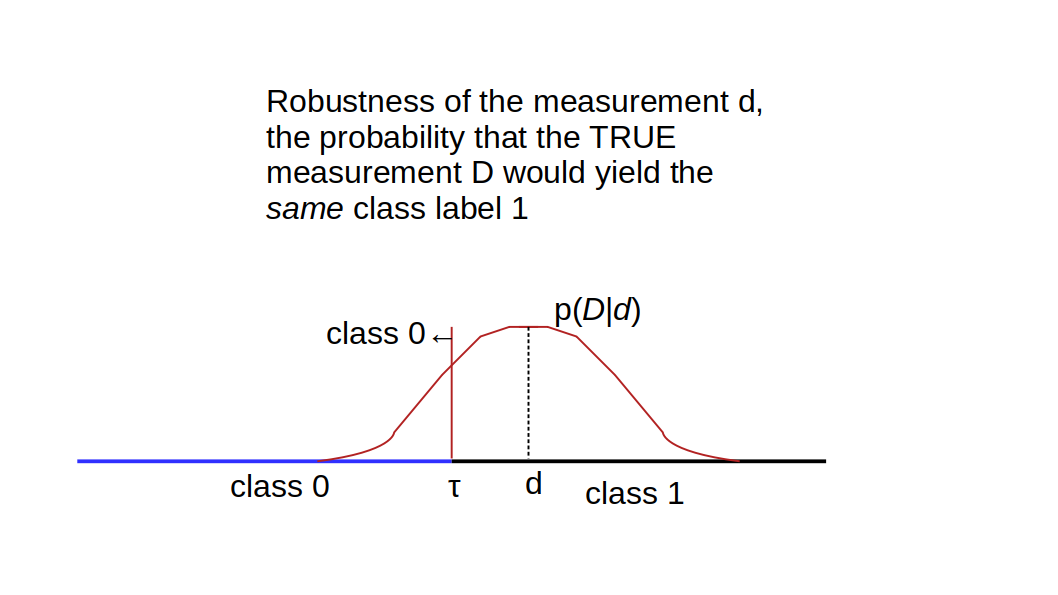I have the following statistical setting:
I have two unknowns $a$ and $b$ an I have two measurements of their values corrupted by noise distibuted uniformly in $[-e,e]$ and I have exact value of $e$ known to me beforehand. I also have a measurement of $d = a - b$ obtained by another method. This measurement is corrupted by a Gaussian noise with variance that I don't know in general, but I can obtain it's estimate in principle if it's necessary. Also this estimate $d$ can be subject to a gross error (outlier) with very large variance so in general the error in $d$ is given by a mixture of a Gaussian and a uniform. The mixing parameter that determines relative weight of a Gaussian and a uniform in the mixture is not known to me and cannot be obtained by any means. Also the method for measuring difference of $a$ and $b$ is way more accurate then separate estimates of $a$ and $b$ when there is no outlier in the mix.
My goal is to establish a reliability measure of measurement $d=a-b$. It's clear that individual measurements of $a$ and $b$ can in certain cases help me identify outliers in $d$. If we consider all possible values of a and b that could have resulted in the measurements that I observe, there may be no possible pair that is close to obtained measurement of $d$ and it clearly suggests that there's an outlier in such a case.
This reliability measure is supposed to be used in a big least squares estimator. I have millions of $a$'s and $b$'s and millions of measurements of their differences. I do a big least squares fit of all this data by minimizing a weighted sum of residuals given by individual measurements and pairwise difference measurements and I want to weight pairwise differences by some weight that reflects their reliability and it's really important to come up with such a measure since outliers will affect least squares alot if they are not attended to.
I see many heuristical ways to cook up such a measure, the most simple being 0 weight to difference measurements that completely disagre with observed individual measurements and 1 otherwise.
But maybe there is a better way of doing this. Do you guys see some non heuristical theoretically sound approach to divise a reliability measure that is to be used in least squares (essentially Maximum Likelihood) estimator in such a setting?

